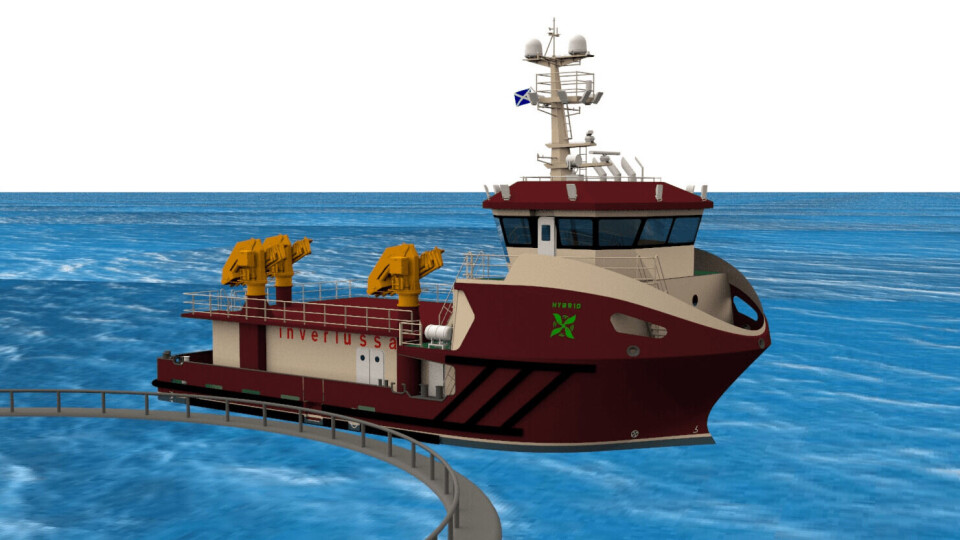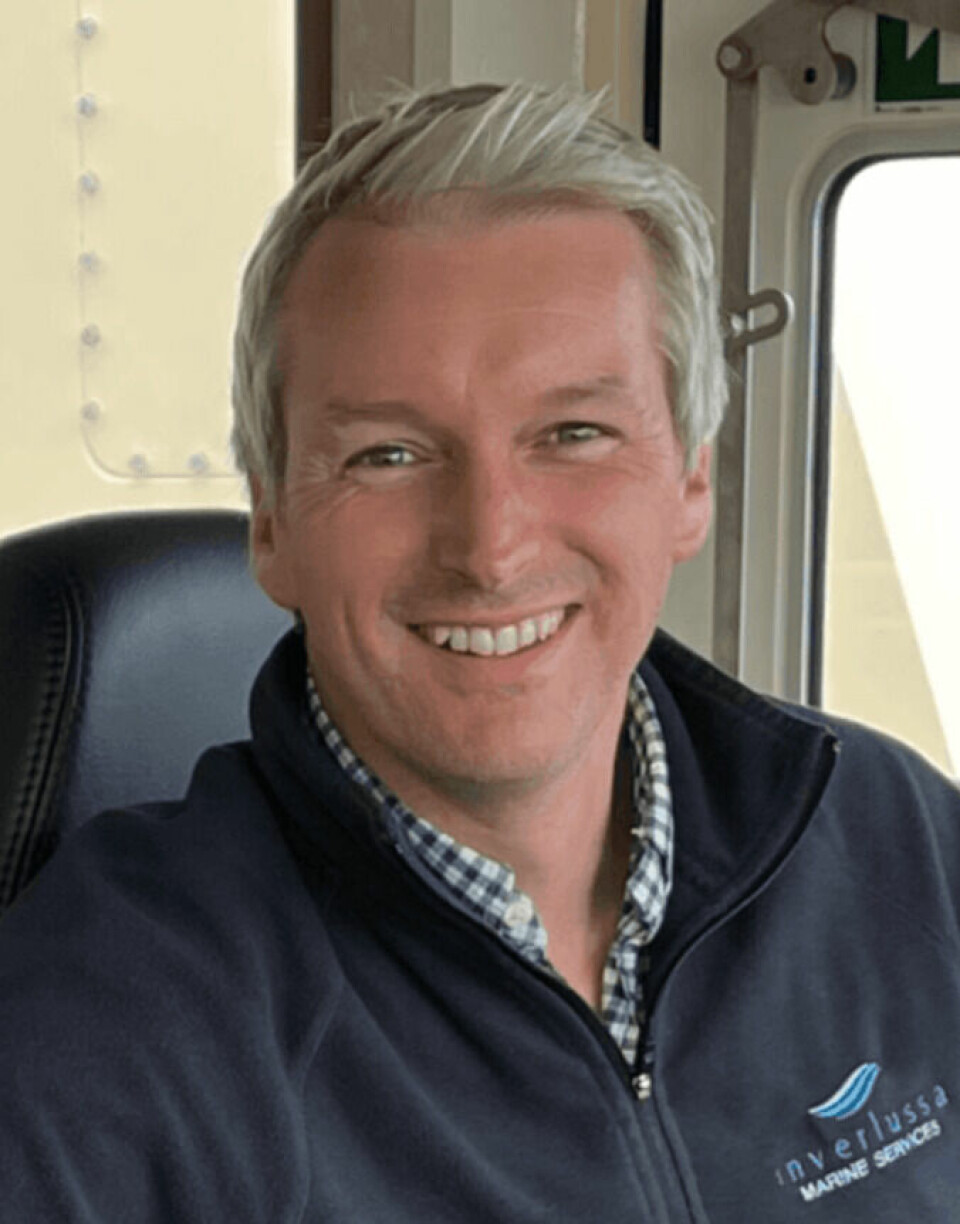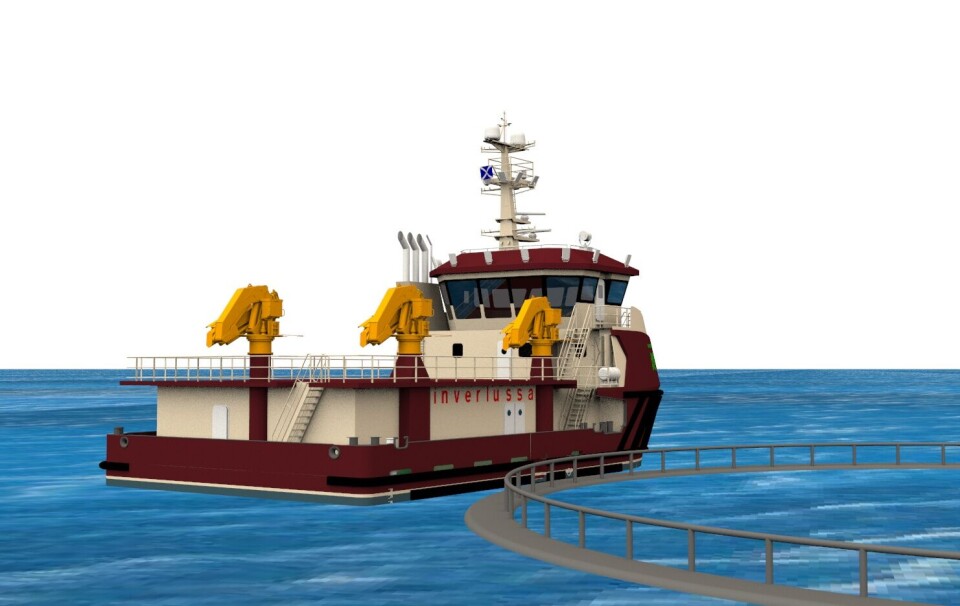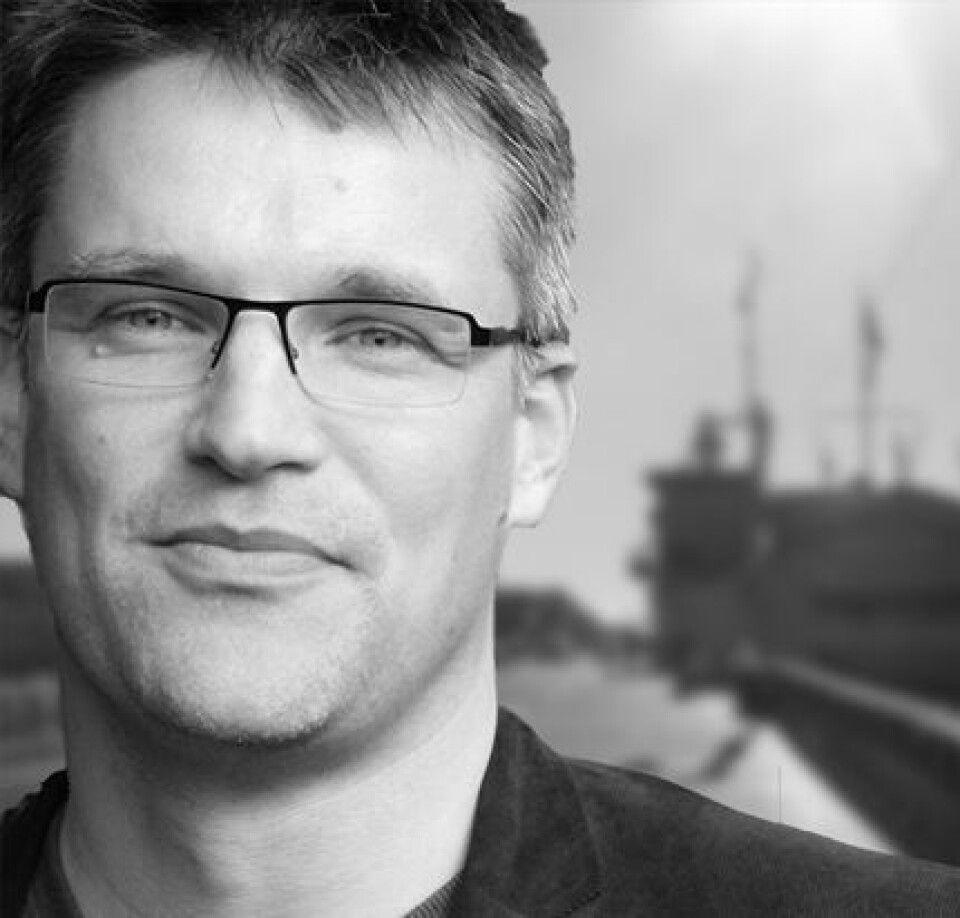
Inverlussa orders two more hybrid service vessels
Scottish aquaculture services provider Inverlussa has ordered two hybrid-power vessels from Dutch boat builder Nauplius Workboats.
The 27-metre-long aquaculture service vessels, which will have both diesel and battery power, will increase Mull-based Inverlussa’s fleet to 20. They follow on from the 34-metre delousing vessel Camilla Eslea which was Nauplius’ first build for Inverlussa and is on a long-term charter to Mowi Scotland. It contains the world’s biggest Thermolicer delousing system.
The first of the new vessels will be named Eloise Eslea and will be delivered in late September, with the second vessel, currently known as N023, due in late December. Inverlussa expects to recruit an additional 12 employees which will take the company’s headcount to 115.

An industry leader
Inverlussa managing director Ben Wilson said the company was pleased to work with Nauplius Workboats again after a positive experience with the Camilla Eslea, which was delivered on budget and on time.
“As a business we want to be an industry leader, building a reputation as a leading and forward-thinking partner in the Scottish aquaculture sector,” said Wilson.
“We aim to achieve this through continually reinvesting, innovating, and a strong focus on working with the most talented crew in the industry. This order for two newly designed hybrid vessels shows Inverlussa’s commitment to delivering the best service to our customers.”
Scottish Government Rural Affairs Secretary Mairi Gougeon said: “I welcome this significant investment in the aquaculture supply chain by Inverlussa Marine Services which will safeguard existing jobs and create further skilled employment in our island communities. It also underlines the importance of the aquaculture sector to the rural economy.”

Azimuth propulsion
The new vessels will have a high focus on crew safety and comfort, as well as low emissions. The latest fish welfare and high-capacity delousing systems will be incorporated.
The vessels have a diesel-electric propulsion system, which ensures optimum availability of power in every working condition and increases weather resilience.
Hybrid technology enables the vessels to use energy from the batteries or store surplus energy in the batteries when the diesel generators are running. The reduced fuel consumption will in turn help drive down the operation costs for customers, said Inverlussa.
These vessels along with Camilla Eslea will be the first fish farm vessels in Scotland to use azimuth propulsion which enables the vessel to use full power in any direction, enabling them to move in wind speeds which would normally not be possible with conventional vessels. They will also have dynamic positioning which enables the vessels to remain stationary on any one position for long periods.

‘Trust in our company’
Nauplius technical director and naval architect Gerrit Knol said: “We are thankful and very proud to partner up with Inverlussa once more. For us as a designer and builder, the repeat order marks the pleasant and constructive cooperation we’ve had with Inverlussa Marine Services, resulting in the reliable and high-performing Camilla Eslea.
“The order for Eloise Eslea and N023 reflects the trust in our company and allows us to incorporate all we’ve learned from each other during the design and building of Camilla Eslea.”
Inverlussa was the first service vessel company in Scotland to take delivery of a fully hybrid vessel last year when Laurence Knight was delivered from Moen Marin in Norway. It is now in service for Scottish Sea Farms.
In addition to the new hybrids, Inverlussa will also take delivery of Geraldine Mary, a 21-metre semi-hybrid vessel from Macduff Shipyards in May this year.
Inverlussa is not new to using stored battery power to reduce fuel, noise and emissions. Existing vessels Margaret Sinclair, Naomi Jennifer and Grace Lamont operate on batteries overnight while the vessels are on standby. This ensures that all living accommodation is fully heated and comfortable without any generators or shore power required.























































